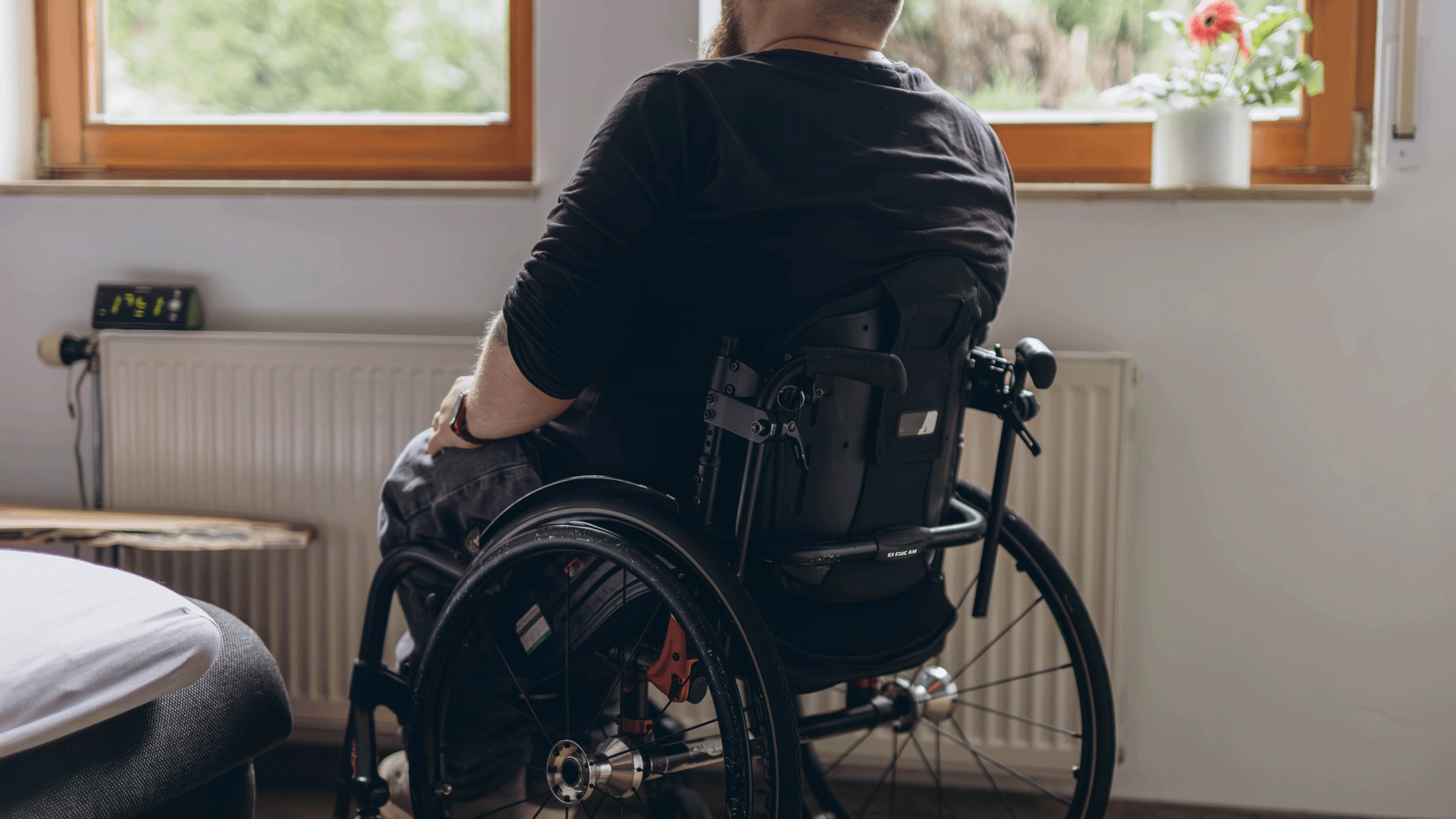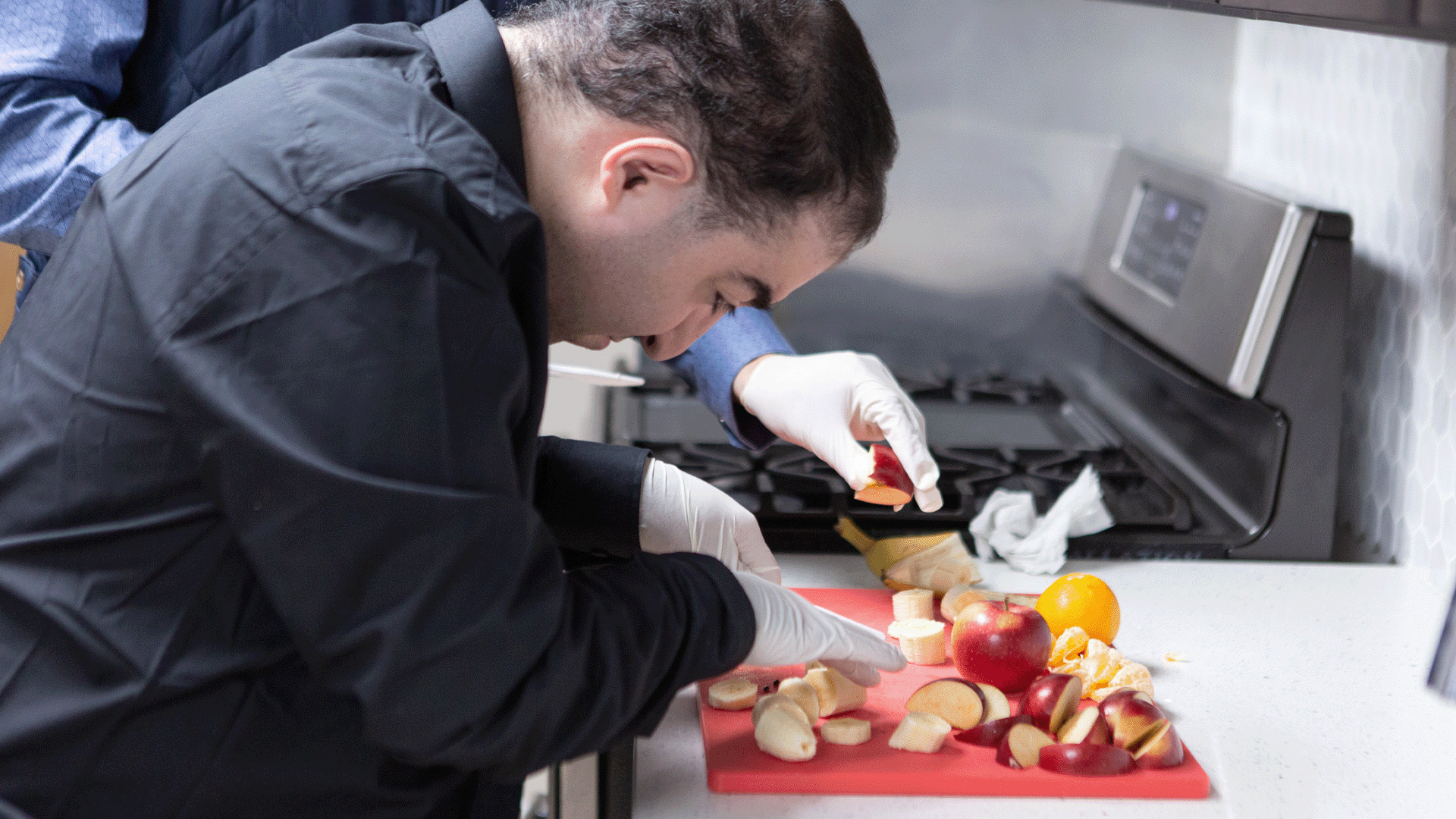Meet Ben
Raised in an Orthodox Jewish family in Brooklyn, Ben was diagnosed at four-years-old with a rare form of epilepsy known as Lennox-Gastaut Syndrome (LGS), which causes severe seizures and has left him cognitively impaired, nonverbal, and reliant on a wheelchair. Ben’s family – including his parents, older brother, and beloved Grandma Faye – quickly adapted to his needs, developing a routine at home to provide all the support he needed.
A Need for Change
By the time Ben reached sixteen, his seizures had increased in frequency and ranged from sudden muscular limpness to full-body convulsions to loss of consciousness. Realizing they were getting older just as Ben was nearing adulthood, the family was heartbroken over no longer being able to handle his increasing needs and level of care. Afraid of sending Ben to live outside the community and lose access to the richness of their Orthodox Jewish traditions and lifestyle, the family contacted The Jewish Board and received a referral to Mishkon.
Finding a Second Home
The team at Mishkon knows that connecting with the resident on a human level is the key to successful care. With a highly trained staff sensitive to the complex needs of each individual, Mishkon provides round-the-clock services including healthcare, physical therapy, occupational therapy, and psychiatric treatment, all through an Orthodox lens. Aside from clinical needs, Mishkon is dedicated to each resident’s emotional, social, and spiritual wellbeing. Regularly scheduled enrichment activities include arts and crafts, Purim parties, and field trips to museums and Brooklyn Cyclones baseball games. Ben’s family was warmly welcomed into the Mishkon community and joined many of these excursions and events. As Ben’s world expanded and he became more comfortable with staff and housemates, even Grandma Faye noticed new communication skills emerging – hand flapping to indicate joy, new expressions and sounds to communicate dissent. When it’s time to watch cartoons or listen to his favorite Beatles album, Ben’s joy is contagious.
A Caregiver Rises to the Challenge
Nine years after coming to live at Mishkon, Ben’s condition suddenly worsened to the point where he was experiencing two seizures a day, putting both his health and safety at risk. After a trip to the emergency room, Ben’s case was taken over by Halima, one of our highly skilled clinical team members, who approached Ben with compassion and recorded the full scope of his seizure activity. With new information from his medical providers, Halima called together Ben’s family, direct support staff, and full care team to create an updated plan. Since starting a new medication regimen and being placed on a strictly ketogenic diet (which eliminates carbs, a known epilepsy trigger), Ben’s seizures have reduced to only four a month, a significant and promising improvement.
Moving Forward
Ben has become a fixture of our community and continues to show improvement in both his social and communication skills. In addition to motioning to his mouth to signal when he’s hungry, Ben can now scrunch his face to show that he’s frustrated, spread his fingers when he’s grateful, and stretch out his arms to show love. Gestures like these remind Halima and the entire team of the valuable work we do, supporting the whole individual and helping them live a fully realized life with the greatest degree of independence and autonomy possible. Ben’s family knew they were making a big change moving him to Mishkon, in addition to confronting their own limitations, but what started as a difficult decision turned into a blessing: two homes full of people who care for Ben and put his best interests first.
*Names have been changed to protect the privacy of our clients.
Our Continued Support
Learn more about our intellectual and developmental disability services and how we’re supporting communities throughout the city.
Intellectual and Developmental Disability Services
Learn More About the NEW YORKERS We Serve
Meet some of the New Yorkers The Jewish Board has been serving across the five boroughs of New York City for nearly 150 years.




